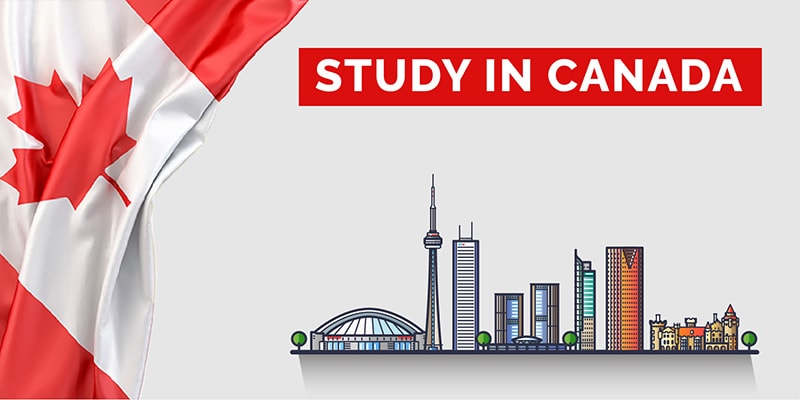
If you are an international student planning to study in Canada, this is for you.
On January 22, 2024 Canada’s Immigration Minister, The Honourable Marc Miller announced a new set of measures aimed at stabilizing the growth of international students in Canada, and putting a cap on the number of study permits to be issued in 2024.
For 2024, the cap is expected to result in approximately 360,000 approved study permits, a decrease of 35% from 2023. IRCC will allocate a portion of the cap to each province and territory, who will then distribute the allocation among their designated learning institutions (schools).
As part of these measures, international students in certain programs are now required to obtain a Provincial Attestation Letter (PAL), and submit this with their applications for study permit in Canada. Provinces and territories are expected to establish a process for issuing the Provincial Attestation Letters (PAL) to students by March 31, 2024.
Who needs a provincial attestation letter?
- most post-secondary study permit applicants
- most non-degree granting graduate programs (for example, college and university certificate programs and graduate diplomas)
- anyone else not included in the exception list below
Who doesn’t need a provincial attestation letter?
- primary and secondary school students
- master’s or doctoral degree students
- in-Canada visiting or exchange students studying at a designated learning institution
- in-Canada study permit and work permit holders (which includes study permit holders applying for an extension)
- in-Canada family members of study permit or work permit holders
- students whose applications were received by IRCC before 8:30 a.m. EST on January 22, 2024
The provinces and territories have complied with these measures, and here are the outlined information and processes for requesting the Provincial Attestation Letters (PAL) in each of the provinces and territories as of March 29, 2024. Any additional information will be updated as received.
1) Ontario
As of March 28, 2024, the PAL process for Ontario is now in place.
Ontario will allocate 96 per cent of permit applications to publicly assisted colleges and universities, with the remaining four per cent allotted to Ontario’s language schools, private universities and other institutions. Career colleges will not receive any applications.
Applications will be allocated to institutions based on the following criteria:
- Prioritize programs in the following high-demand areas, including skilled trades, health human resources, STEM, hospitality and child care.
- Cannot exceed the institution’s 2023 permit levels.
- As a final backstop, the ratio of international permits cannot exceed 55 per cent (exclusive of high-demand areas) of the institution’s 2023 first-year domestic enrolment.
- 22 of 23 universities will keep applications at the 2023 level. Only Algoma University will see a decline from its 2023 applications.
- 11 of 24 colleges will keep applications at the 2023 level.
- Colleges with public-private college partnerships and Conestoga College will see the largest decline.
To acquire an attestation letter to study in Ontario, students should contact their admissions office at the Ontario postsecondary institution where they have accepted their offer of admission and intend to enrol.
For more information, students can also visit the Ontario Ministry of Education website.
2) British Columbia
As of March 4, 2024, the PAL process for British Columbia is now in place.
B.C.’s allocation allows for 83,000 undergraduate study permit applications. This compares to approximately 97,000 study permit applications in 2023 for undergraduate programs. Based on previous acceptance rates, the federal government expects this to result in approximately 50,000 approved study permit applications for B.C. in 2024.
The distribution for the provincial attestation letters will be 53% for public post-secondary institutions and 47% for private institutions. The distribution is based on supporting public post-secondary institutions to maintain their international student programs while managing growth for 2024 and for future years. These numbers are based on the federal allotment of attestation letters, they do not represent approved study permits.
The provincial attestation letter will be sent from the Province of British Columbia to the institutions, then from the institutions to the international applicant. The letter will serve as proof that the applicant has been accounted for within the maximum set by the federal government.
Institutions that use their full allocation in British Columbia will not be able to submit more applications until the federal government issues a new allocation for the following year.
For more information, visit the British Columbia Ministry of Post-Secondary Education and Future Skills website.
3) Alberta
As of March 1, 2024, the PAL process for Alberta is now in place.
The Province of Alberta has indicated that when submitting a study permit application to study in Alberta, you must include a letter of acceptance to a designated post-secondary institution, along with a Provincial Attestation Letter (PAL). These two documents are a requirement to submit a study permit application to Immigration, Refugees and Citizenship Canada (IRCC).
Post-secondary institutions will request a Provincial Attestation Letter on behalf of accepted students in Alberta. Students are advised to contact the registrar of the institution they have been accepted to for questions or more information.
For more information, visit the Alberta Ministry of Advanced Education website.
4) New Brunswick
As of March 18, 2024, the PAL process for New Brunswick is now in place.
After the federal government put a 360,000 cap on the number of international students who can study in Canada next year, the quota assigned to the Province of New Brunswick is 5,580.
International students are encouraged to reach out to their designated learning institutions (DLI) in New Brunswick for application guidance.
We’ve also gathered that some New Brunswick schools now want more money up front from international students. For instance, international students applying to Université de Moncton now have to put up either $4,000 or $8,000 as a deposit, depending on the country they are from, said U de M spokesperson Paul Ward.
The tuition deposit is required as part of the process of getting the Provincial Attestation Letter in these institutions.
For more information on this, see the CBC News article here.
5) Saskatchewan
As of March 13, 2024, the PAL process for Saskatchewan is now in place.
Saskatchewan has been allocated approximately 12,000 PALs to distribute to future international students in 2024. The Province also started issuing provincial attestation letters to eligible post-secondary institutions on March 13, 2024.
Students must first apply to the institution of their choice and receive a letter of acceptance (LOA). If you have been accepted, the institution will notify the Ministry of Advanced Education of your acceptance. The Government of Saskatchewan will then issue a PAL through an automated system, which will notify students when the PAL is available.
International students are encouraged to reach out to their designated learning institutions (DLI) for application guidance.
For more information, visit the Saskatchewan Ministry of Advanced Education website.
6) Manitoba
As of March 4, 2024, the PAL process for Manitoba is now in place.
Like other provinces, PALs in Manitoba will be delivered through DLIs across the province.
International students seeking a PAL from the Manitoban provincial government may also need to pay a deposit to their chosen DLI before the school can apply for a PAL on their behalf.
For example, the official page of the University of Manitoba indicates that the university will require a non-refundable tuition deposit of “$2,000 CAD paid by credit card” before applying for a PAL on the student’s behalf. This deposit must be paid within 10 business days from the time a decision has been made on a student’s application.
7) Newfoundland and Labrador
As of March 19, 2024, the PAL process for Newfoundland and Labrador is now in place.
Like other provinces, PALs in Newfoundland and Labrador will be delivered through DLIs across the province.
Memorial University has said it will “contact admitted students via email to collect any additional information required for the attestation letter process” starting with students who intend to start in the May 2024 semester. This is the university with the highest number of students in the province.
8) Prince Edward Island
As of March 27, 2024, the PAL process for Prince Edward Island is now in place.
Under the new measures, PEI’s Advanced Learning Minister – Jenn Redmond said the province has been told it can bring in up to 2,000 new students across all its institutions.
The province distributed the majority of those spots to the University of Prince Edward Island, which will be able to enrol up to 1,185 international students; 710 spots for Holland College; and 105 for the French-language Collège de l’Île.
The new system requires post-secondary institutions to inform the government about each potential international student who has applied to study on the Island. Then the Department of Workforce, Advanced Learning and Population will provide each school with the attestation letter to pass on to prospective students.
Holland College and UPEI are also increasing tuition deposits for international students. Both schools say they’re raising the tuition deposit from $1,000 to $5,000.
For more information on this, see the CBC News article here.
9) Nova Scotia
As of March 28, 2024, the PAL process for Nova Scotia is now in place.
The number of study permit applications for Nova Scotia is 12,900 this year, down about 7,000 from last year. They will be distributed among 32 designated learning institutions (those approved to accept international students):
•11,565 to the province’s 10 universities and Nova Scotia Community College
•710 to a dozen private career colleges
•526 to nine language schools.
The Province will hold back 99 application spaces to allow for some flexibility to respond to unexpected circumstances and new programs.
With this, institutions can request attestation letters from the Province for first-year international students they’ve accepted.
The letter confirms the student falls within the cap and must be included with the student’s application for a study permit from the federal government.
For more information, visit the Nova Scotia Ministry of Advanced Education website.
10) Quebec
If you want to study in Quebec, you need an attestation of issuance of your Quebec Acceptance Certificate (CAQ), which is issued by the Government of Quebec.
Since February 13, 2024, the MIFI has been issuing an updated letter attesting to the issuance of the Certificat d’acceptation du Québec (Québec Acceptance Certificate) for studies.
This letter enables candidates to apply for a study permit, in accordance with the federal government’s instructions, released on January 22, 2024. At this point, no further action is required on the part of either the applicant or the educational institution.
If you received a letter of attestation of issuance of a Certificat d’acceptation du Québec (CAQ – Québec Acceptance Certificate) for studies from the MIFI before February 13, 2024, and you need an updated letter of attestation to submit your application for a study permit.
For more information, visit the Quebec Ministry of Education website.
I wish you the best in Canada!
If you have questions on Career & Personal Development, Personal Finance, or Building a Personal Brand and want to reach out to us, check what we have here.
DISCLAIMER: The posts and information on this website are not legal advice. We are not Canadian Immigration Consultants and do NOT provide Canadian Immigration Services. For any authorized Canadian Immigration information, services, or support, please check the Government of Canada website at www.canada.ca/immigration
© Olu of Canada




